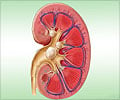Even if kids are likelier to suffer from many diseases than adults, few clinical trials are being conducted to test drugs in paediatric patients, states a study yet to be presented.

Florence Bourgeois, MD, MPH, assistant professor at Harvard Medical School, and her colleagues sought to measure how much research activity is devoted to conditions representing a high burden of pediatric disease. They identified all drug trials for the 10 highest burden conditions registered from 2006 to 2011 in ClinicalTrials.gov, a database of federally and privately supported clinical trials conducted around the world. These conditions included asthma, migraine headaches, schizophrenia, depression, diarrheal illness, lower respiratory infection, malaria, bipolar disorder and HIV/AIDS.
"We found that there is a large discrepancy between global disease burden in children and the amount of clinical trial research devoted to this population," Dr. Bourgeois said.
While nearly 60 percent of the disease burden for high-priority conditions is borne by children, only 12 percent of clinical drug trials are pediatric trials. This discrepancy was greatest for conditions prevalent in middle- and low-income countries.
Funding sources may play a large part in the amount of research devoted to pediatric populations, Dr. Bourgeois said. "We found that 58.6 percent of pediatric drug trials were conducted without any industry funding, relying solely on nonprofit organizations. In contrast, the majority of adult drug trials (64.7 percent) received industry funding."
Additional programs and incentives are needed to increase the number of drugs tested in children by pharmaceutical companies and noncommercial entities, Dr. Bourgeois said. "It is critical that drugs are studied that are most likely to benefit children, particularly children in developing countries who appear to be most neglected in the current research portfolio."
Advertisement
"As has long been suspected, children suffering from both acute and chronic diseases are not well-served by the current drug development and approval processes," said Kenneth Mandl, MD, MPH, senior author of the study and associate professor at Harvard Medical School.
Advertisement













